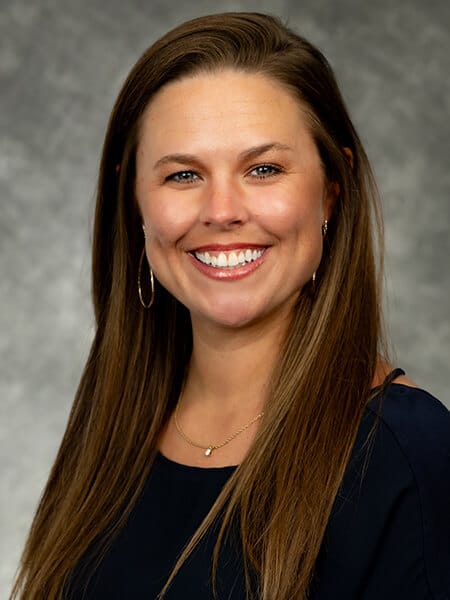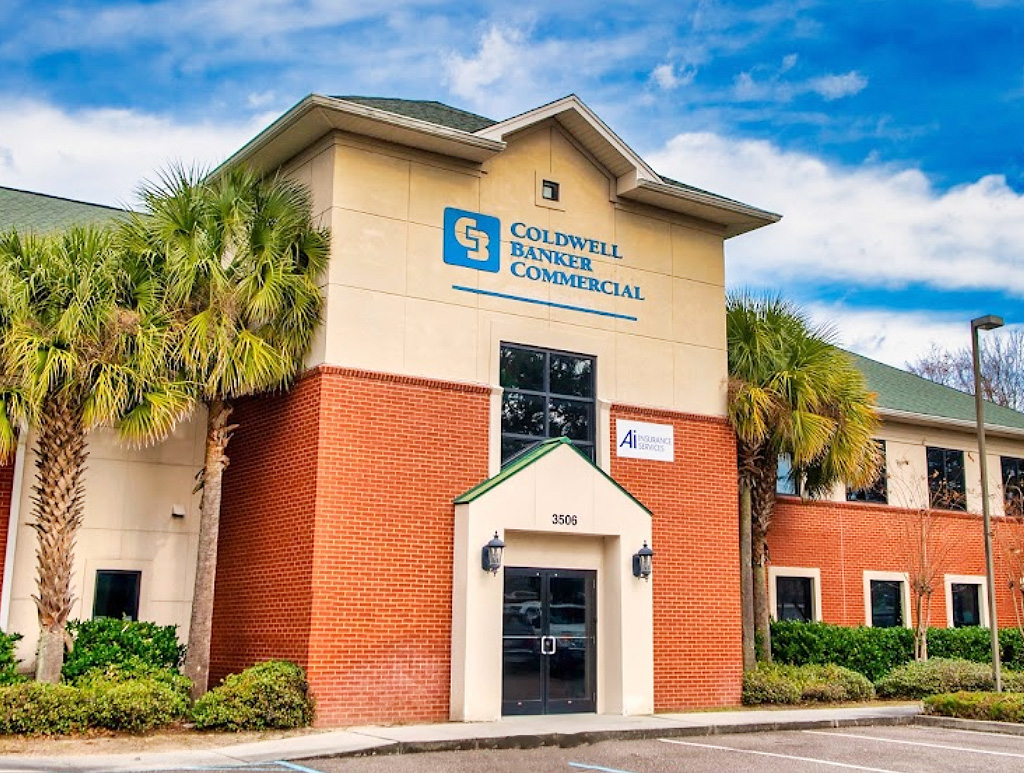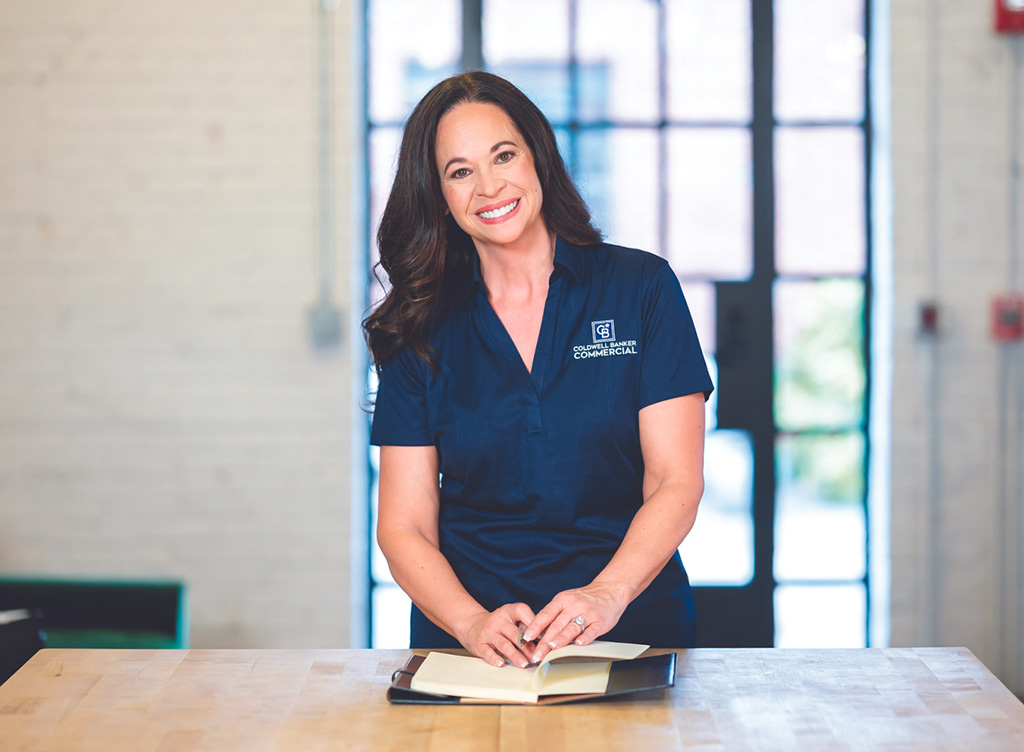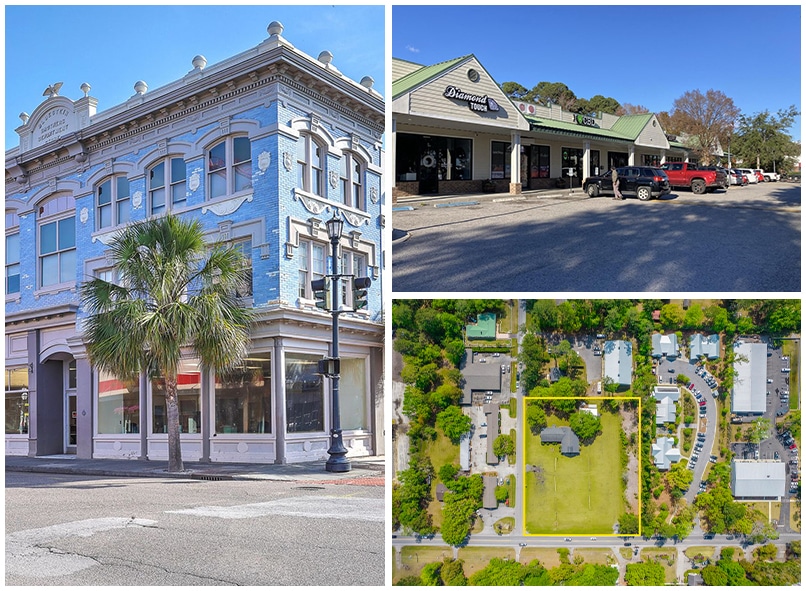

With an average of 230 days of sunshine each year, a low cost of living, and endless recreational activities, Charleston is a joy to call home. As the second most popular place to live in the U.S., metro Charleston is booming, not only with new residents but with new construction and property investment opportunities too. But with the Tri-County's rapid rate of growth comes increased real estate demand and complexity. That's especially true for commercial real estate transactions. According to CoStar, near-zero vacancy rates and short supply have forced rents and sales to reach record highs. At the same time, online medical and grocery purchases, along with last-mile delivery needs, have driven a new desire for industrial space.
It's safe to say that there is a lot of opportunity on the table for commercial real estate sellers and investors in South Carolina. But capitalizing on that opportunity without the proper market knowledge, relationships, or risk analysis can actually be counterproductive to your goals. That's where Coldwell Banker Commercial Atlantic's commercial real estate brokers in Charleston, SC, come into play.
As experts in the commercial real estate industry for more than 37 years, our brokerage provides the highest level of service to clients in today's rapid, constantly-changing business climate.
Service Areas
The Coldwell Banker Commercial Atlantic Difference
At Coldwell Banker Commercial, we pride ourselves on having local power and a global presence. Our clients entrust their complex and lucrative commercial real estate deals to us because they understand the value of working with brokers who are familiar faces within the community. On any given day, you could be standing next to one of our brokers at a grocery store or local restaurant. As your friends and neighbors, we're proud to call the Lowcountry home. Though we have local roots, our resources and expertise are backed by a global network. That power gives our commercial real estate clients peace of mind, knowing they have access to a dynamic and diversified brokerage of highly-trained and educated agents.

From general commercial leasing services and property management to investment guidance and new property site selection, our team works tirelessly to exceed your expectations and meet your goals. Whether you're looking to buy, sell, lease, or develop, our commercial real estate brokerage in Westcott, SC provides the up-to-date advice and time-tested market knowledge needed to facilitate any commercial real estate transaction, large or small.
Some of the commercial real estate specialties we focus on in South Carolina include:
- General Brokerage and Commercial Real Estate Leasing Services
- Commercial Investment Analysis
- Commercial Property Management
- Commercial Property Development
- Commercial Construction and Project Management
- Disposition, Acquisition, and Work-Out Properties
At the end of the day, our commercial brokers and agents aren't satisfied until you're a happy customer. That's why every service and decision we recommend is made with your best interests in mind.

Why Hire a Commercial Real Estate Broker in Westcott, SC?
Perhaps you're in a situation where you need more space for a growing business. Maybe, instead, you want to capitalize on low-interest rates and buy a commercial real estate investment property to bolster your portfolio. Whatever your needs may be, whether as an investor or a small business owner, your goals are probably the same: lock in the best value and negotiate optimal terms for leasing, buying, or selling. When it's all said and done, you want to minimize expenses and maximize your ROI.
Unfortunately, commercial real estate is complex by nature. Given today's ever-changing real estate landscape and the challenges of our economy, working with a commercial real estate agent is the savviest way to save money and lessen the likelihood of making a poor investment.
That's because the very best commercial real estate brokers, like those at Coldwell Banker Commercial Atlantic, do more than putting "for sale" signs in yards and in newspapers. They have the tools and training to source and present research apropos to your commercial real estate purchase or sale. They also have the ability to provide transaction and advisory services to ensure every aspect of your CRE process goes smoothly and efficiently. But we're getting ahead of ourselves. Here are a few of the biggest reasons to work with a commercial real estate broker in South Carolina.

Save Money
Unsurprisingly, money is one of the biggest reasons why people steer clear of CRE brokers - for the cost savings. Yet, just about every commercial real estate transaction is managed by a commercial real estate brokerage. Why might that be? The answer is that smart business owners, executives, and investors know that the most lucrative cost savings stem from good planning, time management, and successful negotiations. Only an experienced commercial real estate broker can provide you with those features while also properly structuring your commercial real estate deal.

Manage Your Time More Effectively
Commercial real estate investors and business owners often have jam-packed schedules with little time to spare for anything other than day-to-day operations. If that sounds familiar, you know how crucial time management is for commercial real estate. By working with a seasoned broker, you can uphold your daily responsibilities while they provide guidance and manage the minutia of your CRE dealings.

Access to Specialized Systems and Data
Reputable commercial real estate brokerages provide access to a bevy of information that is pertinent to your commercial real estate goals. We're talking vacancy and absorption rates, the latest sales price data, comparative labor and tax costs, and more. Your broker will help break down this information so that you can make the most informed decisions possible. Brokerages like Coldwell Banker Commercial Atlantic also have systems and software to facilitate complex real estate processes while eliminating unneeded costs. The combination of accumulated data and exclusive systems results in a more cost-effective, efficient way to meet your real estate requirements on terms that are beneficial to you.

Years of Success and Experience
As is the case with most things in life, practice and repetition are essential in honing skills and achieving business success. The truth is that no amount of money or "how to" articles can suffice for decades of real-world, hands-on experience. Sure, you can find a litany of commercial real estate info online. But those articles won't teach you about navigating the nuances of structuring advantageous purchase terms or completing complicated due diligence tasks. A successful commercial real estate broker in Westcott, SC, will have no problem executing these often-confusing processes because they've done it dozens and dozens of times before. This priceless experience is your best resource for successful commercial real estate initiatives.

Service Integration
One of the biggest advantages of working with a commercial real estate brokerage is their ability to provide necessary services that are relevant to your real estate needs. As a Coldwell Banker Commercial affiliate, we are part of a network that allows us access to accounting, legal, and other services needed on your real estate journey. Finding and vetting these services can be very costly and time-consuming, which is unneeded stress that we're happy to remove from your plate.

Purposeful and Engaging Marketing
For any project to be successful, a strategic marketing plan must be implemented to achieve the desired results for our clients. The methods of exposing and promoting a property must be creative, innovative, and unique to your property. At Coldwell Banker Commercial Atlantic, we utilize the most effective methods that make sense for your property in South Carolina, including:
- Print Materials
- Digital Marketing
- Design Renderings
- Photography
- Weekly and Monthly Advertising
- Affiliation Marketing
- Signage
- More

Negotiating Acumen
If you're reading this page, chances are you're successful to some degree and have entered negotiations a time or two in your professional life. While that's nothing to sneeze at, the art of negotiating in the commercial real estate industry is a skill that must be honed over years of transactions. In the world of CRE, transaction negotiations are often time-consuming and stressful - two things you don't need in your life. Your commercial real estate broker will use their experience to relieve you of that stress so that you can focus on growing your business or serving tenants.

Knowledge of Local Markets
One of the most valuable reasons for working with a commercial real estate brokerage is that staff have a deep understanding of South Carolina's real estate market. In the Lowcountry, trends and market conditions are constantly changing. Opportunities are lost and found daily.
With this market knowledge, your commercial real estate broker in Westcott, SC, can provide an easy-to-understand analysis of various commercial properties within your budget. They'll know what relevant properties are leased or sold for and how much. Savvy commercial real estate brokers are also always informed on local demographics and market indicators that impact your commercial real estate goals. For instance, with COVID becoming a more accepted part of our lives, leasing, and sales in retail have taken off, especially for Class A and Class B centers.
Brief Overview A Brief Overview of Our Specialties
At Coldwell Banker Commercial Atlantic, we specialize in several commercial real estate services. Though each service is comprehensive and will differ for each client, here is a brief overview to help you understand the scope of our abilities.

General Brokerage and Leasing Services
We're proud to say that our commercial real estate brokers in Westcott, SC, are equipped with all the necessary skills and traits to make your life easier. From transactional needs to marketing strategies, our experience and market knowledge is second to none, allowing us to ensure your success in today's market.

Property Management
In an ever-changing commercial real estate industry, our approach to property management is constantly evolving. Our team has extensive experience in commercial real estate management and recognizes its importance as a foundation for long-term value and wealth. As such, Coldwell Banker Commercial Atlantic provides tailor-made property management packages that meet your specific assets needs and objectives.

Project and Construction Management
Whether you're entering a build-to-suite or remodeling a commercial property, our associates are ready to represent you with facility planning, design, construction, zoning restrictions, and so much more. If you're looking for a brokerage that can guide you through every step of the construction process with your goals and budget at heart, look no further than Coldwell Banker Commercial Atlantic.

Investment Analysis
Coldwell Banker Commercial Atlantic provides comprehensive investment analytics to better evaluate potential investments and increase return on those investments. Additionally, our team can facilitate single or multiple-location transactions and also find alternative financing recommendations if needed.

Property Development
From selecting the perfect building site for your property to overseeing its initial construction, our associates provide experience and expertise when you need it most, covering every step and service of property development. If needed, our team can assemble the right professionals to ensure your property is developed to your unique specifications and applicable regulatory standards.

Acquisition, Disposition, and Work-Out Properties
Our commercial real estate brokerage represents clients in both the disposition and acquisition of property and works directly with you to determine your needs. We then strive to improve efficiency and reduce costs. We also assist financial institutions and government agencies in the management and disposition of ‘troubled properties.' Our firm incorporates its spectrum of services to efficiently turn these properties around and improve their value for ultimate disposition.

Time-Tested Tips for Commercial Real Estate Investing
If you're just getting started in commercial real estate investing, you're probably searching for reliable advice and best practices to follow. While hands-on experience and guidance from a commercial real estate broker are always best, a little advice never hurts. After all, there's a wide world of opportunity out there. As you begin to build a more robust portfolio, keep these tips and tricks in mind.

Take Your Time
Commercial real estate deals can take a lot longer than traditional single-family transactions. That's true throughout the entire process, from purchase, to renovation, to selling. That's not a bad thing - after all, having impatience is a good way to rush into a poor decision. Instead of a means to quick cash, think of commercial real estate deals as a large bonus or as a vehicle for retirement.

Keep an Open Mind
Many commercial real estate investors jump right into the multi-family property space. However, it's essential to keep other types of properties in mind, such as mobile homes, office buildings, land, and even mobile home parks. Forget about your comfort zone. Instead, weigh your options and choose a niche that helps you meet your goals.

Search for Great Financing Before Making Offers
Commercial loans are quite different than their residential counterparts. In some ways, they're better. Though down payments are typically higher, meaning you'll put more down, there's often no personal liability involved. Plus, commercial loans can be more forgiving when borrowing money for down payments. The bottom line is to search for the best lenders before making an offer. If you're having trouble, ask your commercial real estate broker for assistance, as they often have connections and partnerships with relevant entities.

Learn the Appropriate Formulas
If you're used to buying residential homes, you're probably familiar with some formulas, such as buying 75% of after-repaired value minus the estimated cost of repairs. Depending on the type of commercial property you're buying or selling, you'll have different formulas to learn. Two examples are Cap Rates and Net Operating Income. Learning these formulas can be very beneficial when making an offer.

Lean On Your Commercial Real Estate Agent in Westcott, SC
If you find yourself discouraged with the commercial real estate game, remember that the team at your commercial real estate brokerage is there to make your life easier. At Coldwell Banker Commercial Atlantic, we have a powerful brokerage with a team of over 20 highly skilled and educated agents. Our job is to serve you, whether you're a new investor looking for your first deal or an experienced property owner looking for 1031 tax investment advice.

REQUEST CONSULTATION
Latest News in Westcott, SC
Are the Quasar Science Q-LED Lights the Best Video Lights for Your Money?
Patrick Hallhttps://fstoppers.com/diy/are-quasar-science-q-led-lights-best-video-lights-your-money-397919
Whether you are a photographer or videographer, more and more content creators are adding constant lights as their go-to lighting setups. Quasar Science recently released their 30-watt T8 bulbs with raving reviews, and today, I explore six useful lighting setups you can build with four lights under $80 each.If you watch the Fstoppers Youtube Channel, you know that Lee and I have gotten to play with a lot of different lighting gear over the years. A few weeks ago, my buddy, Keith Bradshaw, told me he built the ultimate...
Whether you are a photographer or videographer, more and more content creators are adding constant lights as their go-to lighting setups. Quasar Science recently released their 30-watt T8 bulbs with raving reviews, and today, I explore six useful lighting setups you can build with four lights under $80 each.
If you watch the Fstoppers Youtube Channel, you know that Lee and I have gotten to play with a lot of different lighting gear over the years. A few weeks ago, my buddy, Keith Bradshaw, told me he built the ultimate DIY LED light panel that I had to check out. He even went as far as saying his homemade light panels were better than our expensive Westcott Flex Cine 1x3 Lights (which are part of the Peter Hurley Flex Kit). Our lights cost about $1,400 each, while his light, which is a foot longer than ours, was apparently built for only $330 total. Of course, I was a bit skeptical, so I told him to bring the light fixture down to the studio and we could compare them.
I had never heard of the brand Quasar Science, but apparently, they are a well-respected lighting company, and tons of people have been reviewing their LED T8 bulbs online. Quasar makes a few different versions of these bulbs with the most basic ones, the Q-LED, coming in a single 3,000 Kelvin or 5,600 Kelvin color temperature. The next step up is their X Crossfade lamps, which allow you to switch between tungsten and daylight temperatures (2,000K and 6,000K). Perhaps the most impressive lights were just released this year, the Quasar R-Rainbow LED lights, which use RGBX LEDs that can create any color in the rainbow. These also have more controls, such as hue and saturation levels and can be controlled wirelessly or through DMX controls. I'd love to try out these new lights, but Keith's rig was built around the basic 5,600K bulbs. Also, each of these series of LED lights comes in different lengths ranging from 2', 4', and 8' depending on the model and series of lights.
I've never really used any other T8 lights, before so I've made a short little list of the features that make these lights super useful and interesting.
Advantages
If you watch the video above, you can see how Keith built his homemade fixtures for these lights. Basically, he mounted four Q-LED 4' lights to a small piece of plywood using 8 T8 clips he bought off Amazon (he has since added a few extra rows to make it even more rigid). The whole rig was then mounted to a 3" Baby Pin Wall Plate so he can easily mount the light to any C-stand or grip knuckle. All four lights are then plugged into a small power strip and controlled with a Triac Dimmer.
My Impressions
As mentioned in the video, I used to enjoy making my own DIY gear back when I first started out in photography. As the years went by and my business grew, I found myself appreciating professional gear that was well designed and built for everyday use. However, professional gear almost always costs more, and depending on what your needs are, sometimes you really can build something that is as useful and maybe has even more versatility than the more "professional" options on the market.
After playing with Keith's "Kino Flo Killer," I have to say, I was pretty impressed with how simple this light is to use and how powerful these four bulbs are when combined into one single light. When compared to our Westcott Flex 1'x3' Cine Kit Led Light, the Quasar light did seem a little less even, probably because the Westcott light is a little wider and has a built in diffusion baffle over the LED lights. That being said, the Quasar lights are a full foot longer, so you do get a bit more even lighting if you are shooting full body or you are framing up a 3/4 portrait. If you were to add a fifth or sixth bulb, you wouldn't really be adding much in terms of power, but you could probably make the light even more even and soft. Of course, you would also need a larger power strip, and the overall light would start to become a bit heavier than the Westcott light too.
The biggest problem with all of these LED panel lights is that they really are only good for one type of lighting: soft, even lighting. If you want to create a hard light or if you want to add modifiers to your lights to shape them in useful ways, these panels leave a lot to be desired. For this reason, we have bought quite a few Fiilex P360 Pro LED lights, which let you add Profoto modifiers to them for harder and more specular lighting options. However, at $795 a pop, these lights are pretty expensive for what they do.
That being said, these lights are super cool and extremely affordable at just $75 each. I can also see them being really useful in tight spaces like lighting car interiors or building a small set in your home. While these lights aren't quite bright enough to be super useful outside, a single bulb is plenty bright if you are shooting at f/2.8 at ISO 400-1600. I also like the idea of being able to pair two to four lights together to get one strong light source, but then also being able to break the lights apart to be able to build something more complex if I need the flexibility.
Hopefully, I can get my hands on some of the Quasar Science Q-LED R-Rainbow LED lights, because those things look super interesting, but if you just need a simple light than is balanced for daylight or tungsten light, these Q-LED lights are definitely worth checking out.
Topics:
Special Delivery On The Great Lakes
CBS Newshttps://www.cbsnews.com/detroit/news/special-delivery-on-the-great-lakes/
Detroit, MI (CBS Detroit) - Established in 1874, the J.W. Westcott story actually begins December 19, 1848, when John Ward Westcott was born into a prominent Michigan shipping family. John's father, David H. Westcott worked as a fireman. Ward also founded Ward's Central and Pacific Lake Line and Ward's Detroit and Lake Superior Line. Westcott's brothers were also involved in various shipping careers.Today, J.W. Westcott continues to serve the Great Lakes marine community providing everything from the obvious to the ri...
Detroit, MI (CBS Detroit) - Established in 1874, the J.W. Westcott story actually begins December 19, 1848, when John Ward Westcott was born into a prominent Michigan shipping family. John's father, David H. Westcott worked as a fireman. Ward also founded Ward's Central and Pacific Lake Line and Ward's Detroit and Lake Superior Line. Westcott's brothers were also involved in various shipping careers.
Today, J.W. Westcott continues to serve the Great Lakes marine community providing everything from the obvious to the ridiculous and everything in between.
"Captain J.W. Westcott started this out of the need for some sort of ship-to-shore communication," explains President and Owner James Michael Hogan. "With us being established in 1874, as far as the marina history goes, we probably are pretty much the longest continuous operation, which is a part of the commercial Great Lakes shipping industry."
"We are really the only ones that do what we do, in terms of overall service," says Boat Captain William Redding. "With the mail deliveries, freight deliveries and what not."
"We do three shifts per day, the boat runs 24 hours a day, 7 days a week during the navigation season," explains General Manager Sam Buchanan. "We may have anywhere from 1 to 20 runs per day."
"My task is to maneuver our boat alongside these deep-draft vessels," says Buchanan, "and they're moving, so it's kind of a specialized skill."
"As I have put in each year at this job, I have realized the importance of the tradition," says Hogan. "And the mystique and the uniqueness I guess you might say of all of this."
Watch for "Eye on Detroit" segments weekdays during "CBS This Morning" at 7 a.m. featuring unique and positive stories from the Motor City.
© 2020 CBS Broadcasting Inc. All Rights Reserved. This material may not be published, broadcast, rewritten, or redistributed.
Inside Iron Hill Brewery's 'pretty aggressive growth plan' with CEO Chris Westcott
Philadelphia Business Journalhttps://www.bizjournals.com/philadelphia/news/2022/05/02/iron-hill-brewery-growth-strategy-chris-westcott.html
Iron Hill Brewery has laid out “a pretty aggressive growth plan” for the coming years as the Wilmington company looks to ramp up its presence in existing markets while also expanding into new states, CEO Chris Westcott said.Part of Westcott’s strategy since stepping in as CEO last October has been an emphasis on growing the 20-location brand into addi...
Iron Hill Brewery has laid out “a pretty aggressive growth plan” for the coming years as the Wilmington company looks to ramp up its presence in existing markets while also expanding into new states, CEO Chris Westcott said.
Part of Westcott’s strategy since stepping in as CEO last October has been an emphasis on growing the 20-location brand into additional territories, positioning it to “become a bigger player” in the hospitality industry, he said. Northern Virginia, Maryland and Columbus, Ohio are top of mind.
The goal is to open about five new locations per year for the next five years, he added. The first couple would be full-service restaurants, while the following few would be the company’s more fast-casual TapHouse model that got its start last year in Exton.
Iron Hill Brewery is using “a hub and spoke model” to actualize that growth, Westcott said, meaning the brand plans to enter new territories by opening a full-service restaurant and then “sprinkle in” some of the smaller-version TapHouses in the surrounding area. The idea is to increase brand awareness in a new market with the full-size product before branching out. In already established markets, the brand can dive right in to rolling out new TapHouses.
For example, a few years ago Iron Hill Brewery opened a full-service outpost in Greenville, South Carolina. It’s now looking at several sites in Greenville, Spartanburg and up into Charlotte, North Carolina, for potential TapHouses because the original Greenville outpost “is tucked in close to those other communities,” Westcott said.
Iron Hill Brewery currently has a location under construction in Columbia, South Carolina, and a year after its opening would look to debut TapHouses “in other pocket areas of Columbia,” Westcott said. The same is true in Atlanta, where Iron Hill Brewery currently operates two locations.
The expansion model takes extra planning as the company grapples with ongoing labor shortages and supply chain issues, Westcott said. Items that used to arrive in 12 to 16 weeks now come in 40 to 50 weeks, meaning you have to think a year in advance, he said.
“That just gets costly because you have requirements to open in a certain time from the point where you sign your lease,” said Westcott, who was formerly CEO of restaurant chain Rosa Mexicano. “So it's more stressful, it's more expensive. Cost is out of control.”
Westcott also sees “plenty of room” to build additional TapHouses in Pennsylvania “without cannibalizing” Iron Hill Brewery’s existing full-service restaurants. The brand is similarly eyeing additional space in South Jersey, where Westcott noted liquor licenses can go for three times the cost in Pennsylvania — which is already known to be hefty versus other markets.
New locations will largely begin launching in 2023. While the Covid-19 omicron variant dealt another blow to the hospitality industry at the start of this year, Iron Hill Brewery decided to spend 2022 focusing on revamping its existing fleet, which includes 20 locations throughout Delaware, New Jersey, Pennsylvania, South Carolina and Georgia.
Special attention is being paid to refreshing Iron Hill Brewery outposts that are at least 15 years old, Westcott said. Many such locations have outdated layouts, including separated dining spaces that date back to former smoking and non-smoking sections.
Investments are ranging from $150,000 to $325,000 for improvements at existing locations, he added.
The Ardmore outpost is on the cheaper end of that scale, for example, while Lancaster is on the upper level because the brand looks to remove separation between dining areas, expand the bar, modernize design while moving away from the “older steakhouse-looking furnishings,” and revamp floor coverings.
Such investments will better bridge the older Iron Hill Brewery locations with the new forthcoming outposts, Westcott said.
As Iron Hill Brewery works to expand its reach, the company is also focusing on finding new ways to connect with customers.
One method is via an upcoming quarterly subscription program dubbed “The Craft Beer Society,” where members would have access to exclusive brews. Membership costs $40 per quarter and includes two 16-ounce cans of four beers.
Iron Hill looks to launch the program in time for Father’s Day.
Sweet Science Coffee near Courthouse rebrands as SIMONA Café
Jo DeVoehttps://www.arlnow.com/2023/01/23/sweet-science-coffee-near-courthouse-rebrands-as-simona-cafe/
The Arlington location of Sweet Science Coffee in Lyon Village rang in the New Year with a new name, SIMONA Café, and more food and drink options.Despite the new offerings, “the coffee program is still a really good program,” says owner Jad Bouchebel, who remains a partner in the business. Sweet Science continues to operate under the original brand in D.C.’s ...
The Arlington location of Sweet Science Coffee in Lyon Village rang in the New Year with a new name, SIMONA Café, and more food and drink options.
Despite the new offerings, “the coffee program is still a really good program,” says owner Jad Bouchebel, who remains a partner in the business. Sweet Science continues to operate under the original brand in D.C.’s NoMA neighborhood.
The acclaimed Sweet Science Coffee opened the outpost at 2507 N. Franklin Road, near Courthouse, about two years ago, advertising some “all-day” offerings to differentiate the Arlington offshoot.
But Bouchebel says it took until last spring, with help from his associate Roberto “Tito” Peña, to get more lunch items on the menu and to put to use its ABC license for beer and wine. Last fall, the duo decided to rebrand, redecorate the coffee shop’s spartan interior and expand the menu and hours.
“We wanted to make it more of an all-day concept. That’s the reason we changed the name — to separate from the D.C. location,” said Bouchebel, an Alexandria resident who named the cafe after his daughter. “We don’t want to confuse people. We offer totally different offerings.”
Bouchebel, still a partner at Sweet Science as well as Clarendon nightlife spot Wilson Hardware, says the cafe never really closed, but SIMONA Café had a soft opening in late December and its grand opening on Friday, Jan. 20.
Now, Peña says, the café’s interior gives people “a cool place to hang out in the afternoon,” and enjoy lunch and dinner options, charcuterie and cheese boards, beer, wine and weekend mimosas.
Like the coffee menu, Peña says the wine list is one that “people can delve into without much knowledge.”
The food menu, meanwhile, keeps the kitchen staff at SIMONA busy.
“We bake our own bread for our breakfast sandwiches,” Bouchebel said. “Everything we do in house: from salsa, to toppings, to bread and to our pastries — we bake them every morning here.”
Peña says the coffee comes from Rare Bird Coffee Roasters in Falls Church, and his baristas aim “to provide really nice coffee that’s approachable.”
“We can get nerdy if people want, but the goal is to meet customers where they’re coming in,” he said.
For Peña and Bouchebel, the expanded hours and menu pay homage to the coffee shop’s history. The space used to be home to Java Shack, a community hub at one point owned by Commonwealth Joe, which closed the location in 2019.
“We still get a lot of clients who’d been coming for 20 years,” Bouchebel said. “Java Shack was a staple — a neighborhood cafe — so instead of just offering half-day hours, we kept it going whole-day for people looking for [that experience].”
Peña says he remembers going to Java Shack in the ’90s as a high school student.
“It was my first favorite coffee shop,” he said. “It’s kind of cool: the original owner, Dale, is now a regular for us. I talk to him every week… We have some regulars who’ve been coming for 20 years.”
Honor Guard ceremony celebrates local deputies
Jenna-Ley Harrisonhttps://www.postandcourier.com/journal-scene/news/honor-guard-ceremony-celebrates-local-deputies/article_96c8e2f1-be86-5289-b25d-390584e015ee.html
More than a dozen deputies with Dorchester County Sheriff’s Office were recognized for their participation, professionalism and proper protocol procedure with the agency’s Honor Guard last year.Despite what Charleston County Sheriff Al Cannon called “hard times in law enforcement” for current officers, he said the profession as a whole is “noble” and respected by a majority of citizens.“It’s a profession which has people who are not satisfied to rely on others to make a safe envir...
More than a dozen deputies with Dorchester County Sheriff’s Office were recognized for their participation, professionalism and proper protocol procedure with the agency’s Honor Guard last year.
Despite what Charleston County Sheriff Al Cannon called “hard times in law enforcement” for current officers, he said the profession as a whole is “noble” and respected by a majority of citizens.
“It’s a profession which has people who are not satisfied to rely on others to make a safe environment for the people (they) love,” he said.
The special awards were handed out Wednesday morning at the Honor Guard’s 5th Annual Awards Luncheon at the Golf Club at Westcott Plantation—with some receiving the achievement for the fifth and sixth time.
According to Lt. Robert Biddle, commander for both Honor Guard and the Special Entry Team, 18 deputies comprise the current team and nominate each other for the yearly awards.
“The team helps pick,” he said.
A total of 14 Honor Guard members received praise for their service with two additional deputies — not in the Honor Guard — named for exclusive awards.
Members were chosen based on professionalism, overall appearance, morale and good standing, among other qualities.
“The people on this team are selfless and motivated,” Dorchester County Sheriff’s Office Chief Deputy Sam Richardson said. “They are always prepared and sharp in whatever particular event they’re participating in.”
From parades and political parties to fallen officers’ funerals, the Honor Guard practices each month and travels across the Lowcountry utilizing their presence and services to add a special touch to such events. Honor Guard members do everything from play the bugle and bagpipes, post the flag, carry officers’ caskets and sound a 21-gun salute.
“They’re important in how they represent the office with morale and the public view in terms of professionalism of our agency,” Richardson said.
Honor Guard services are often spread out among various Honor Guards in the tri-county, too, so units are shared when necessary or sometimes sent to ceremonies outside the immediate community.
“We work well with other agencies to make it the best event,” Biddle said.
At the ceremony, Dorchester County Sheriff’s Office also celebrated the career work of Deputy Lt. Martin “Poncho” Villa, Patrol Team One commander who’s been with the agency for more than 25 years. The news came as a shock to him since he was unaware he’d be receiving the award.
A popular figure in the community due to his years of service and humble, approachable nature, his colleagues said, Villa received the Honor Guard Leadership Award for his assistance in keeping a suicidal victim from taking his life.
Villa was called to the scene to talk to the knife-wielding man.
“I said, ‘Put the knife down; ain’t nobody gonna hurt you,’” he said.
Villa’s team had already surrounded the victim with at least one gun pointed and ready to fire for officer protection, and if necessary, pull the trigger to slightly injure the man and force him to drop his knife — an “old-school” police tactic, Villa said.
Fellow Deputy Sgt. Joli Tumbleston, who received her second career Honor Guard service award Wednesday, presented Villa’s surprise achievement while boasting to the crowd about his seasoned tactics and tranquil presence in taxing situations.
“This deputy has demonstrated his knowledge of law on a daily basis,” she said, “...his demeanor calms.”
Charleston County Sheriff Al Cannon also attended to honor one of his deputies, whom the neighboring sheriff’s agency selected for this year’s Life-Saving Award.
Deputy First Class James Thomas was recognized for aiding a gunshot victim in February at a location near the Charleston-Dorchester county line. North Charleston officers also aided in the incident. “I just picked him up off the ground,” Thomas said, “put a glove on…plugged his (bullet) holes and cleared the scene for EMS.”
The victim had suffered gunshots to both the face and neck, and Thomas’s actions “without hesitation,” a colleague said, kept the person from bleeding to death.
“Had (Thomas) not shown up, (the victim) probably would not have made it,” Dorchester County Sheriff’s Cpl. Matthew Dixon said. A former Marine, Thomas is an eight-year veteran of the Charleston County patrol division and also serves as an agency bomb technician.
The following Dorchester County Sheriff’s Deputies also received service awards: Lt. Robert Biddle (6th award); Sgt. Adam Sutton (5th award); Pfc. James Delong (4th award); Cpl. Jason Jones (3rd award): Cpl. Daniel Brown (2nd award); Sgt. Keith Hunt (2nd award); Cpl. Matthew Dixon (1st award); Pfc. Thomas Happe (1st award); Pfc. Greg Willis (1st award); Pfc. Shawn Marasco (1st award); Pfc. Londie Richardson (1st award); Pfc. Phillip Cole (1st award).
Dorchester County Sheriff L.C. Knight praised the dedication and hard work of each deputy. “Ya’ll are an example of what we try to stress in the Sheriff’s Office,” he said. “You do great…I know you give a lot of your personal time.”
Fallen deputies Philip Michael Deese, his K-9 Sonja, and Gary Blackwood were also recognized.
Plaques with their photos were placed at a separate table in the middle of the room.
Disclaimer:

 843-744-9877
843-744-9877